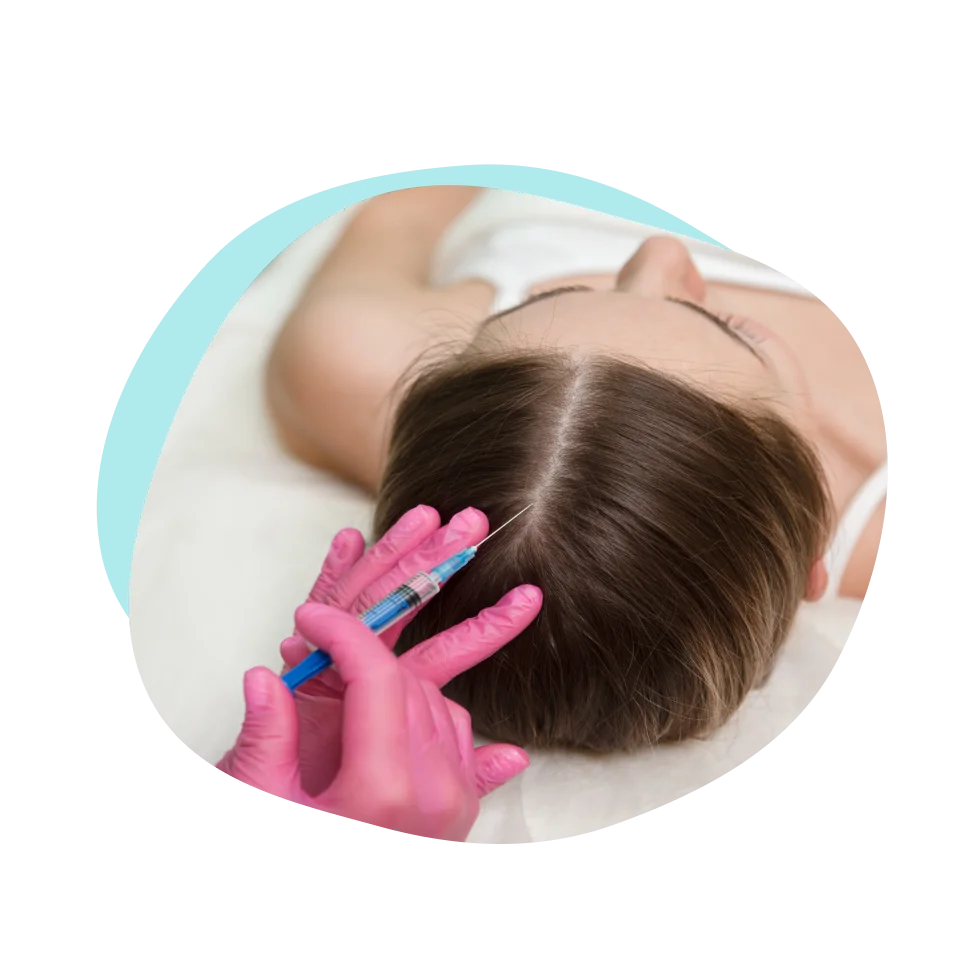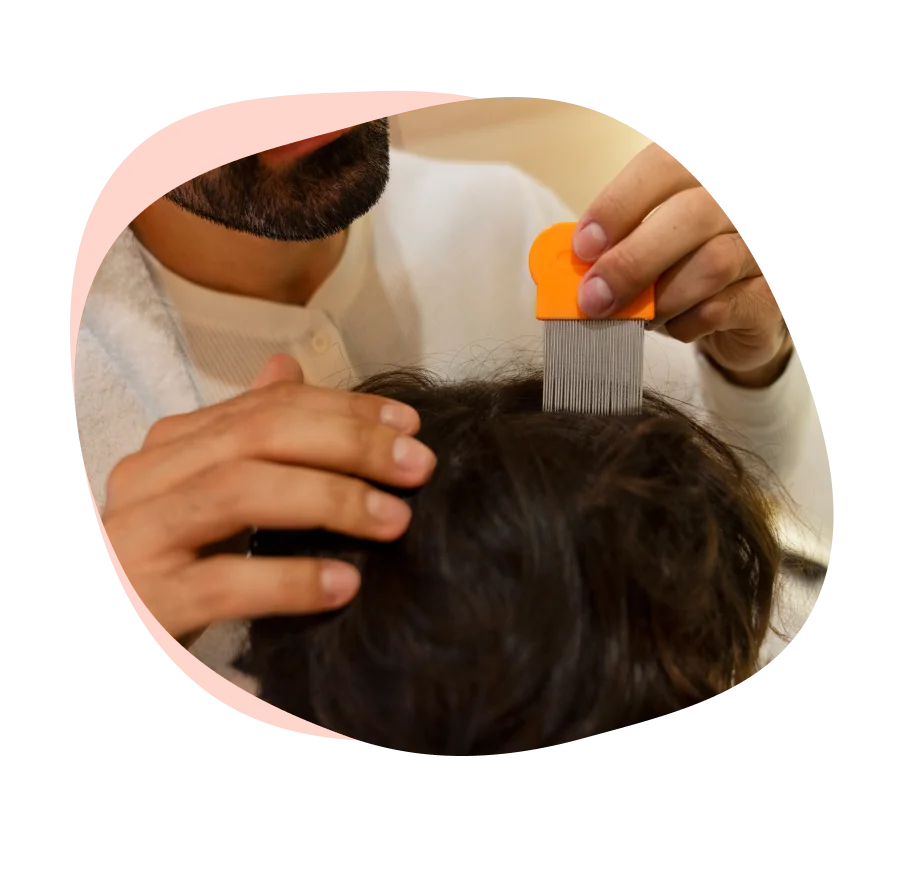Tinea Capitis
Tinea Capitis![]()
What is Tinea Capitis?
Tinea capitis is a fungal infection of the scalp caused by dermatophyte fungi, including species like Trichophyton and Microsporum. These fungi thrive in warm, moist environments and can infect the scalp through direct contact with infected humans, animals, or contaminated objects. Tinea capitis can manifest in various forms, including scaling, inflammation, pustules, and hair loss.
Symptoms of Tinea Capitis:
Tinea capitis can present with a range of symptoms, including:
- Itchy scalp
- Redness, inflammation, or scaling of the scalp
- Circular bald patches or areas of hair loss
- Pustules or raised bumps on the scalp
- Brittle or distorted hair shafts
- Swollen lymph nodes in severe cases
Causes of Tinea Capitis:
The primary cause of tinea capitis is exposure to dermatophyte fungi, which can occur through:
- Direct contact with infected individuals, animals, or contaminated objects such as combs, hats, or bedding.
- Fungal spores present in soil, especially in warm, humid climates.
- Poor hygiene practices or sharing personal items with infected individuals.
Tinea Capitis![]()
![]()
![]()
![]()
![]()
![]()
Treatment of Tinea Capitis:
Treatment for tinea capitis usually involves antifungal medications, which may be administered orally or topically, depending on the severity of the infection. Common treatment options include:
- Oral antifungal medications: Oral medications such as terbinafine, griseofulvin, or itraconazole are often prescribed for severe or widespread infections.
- Antifungal shampoos: Medicated shampoos containing ingredients like ketoconazole or selenium sulfide may be used to reduce fungal growth and relieve symptoms.
- Topical antifungal creams: Creams or ointments containing antifungal agents may be applied directly to affected areas to treat mild infections or support oral medication therapy.




Diagnosis of Tinea Capitis
Diagnosing tinea capitis typically involves:
- Clinical examination: A healthcare professional will examine the scalp and hair for characteristic signs of tinea capitis, such as scaling, inflammation, or hair loss.
- Wood’s lamp examination: A Wood’s lamp, which emits ultraviolet light, may be used to detect fluorescent fungi on the scalp.
- Scalp culture: A sample of scalp skin or hair may be collected and cultured in a laboratory to identify the specific fungus causing the infection.
Tinea Capitis![]()
![]()
![]()
![]()
![]()
![]()
Prevention of Tinea Capitis
Preventing tinea capitis involves practicing good hygiene and avoiding contact with infected individuals or contaminated objects. Consider the following preventive measures:
- Wash hands regularly, especially after touching animals or contaminated objects.
- Avoid sharing personal items such as combs, brushes, hats, or bedding.
- Encourage children to avoid close contact with infected classmates or friends.
- Maintain proper scalp hygiene by washing hair regularly with a gentle, antifungal shampoo.
- Treat and disinfect pets that may carry fungal infections to prevent transmission to humans.
Tinea Capitis![]()
![]()
![]()
![]()
![]()
![]()
Conclusion
Tinea capitis is a common fungal infection of the scalp that can cause discomfort and hair loss if left untreated. If you or your child experience symptoms of tinea capitis, seek prompt medical attention for diagnosis and treatment. With appropriate antifungal therapy and preventive measures, tinea capitis can be effectively managed, allowing you to maintain scalp health and well-being.
If you suspect tinea capitis or have concerns about scalp health, don’t hesitate to reach out to us at Allôroots Hair Restoration. Our experienced team is here to provide comprehensive care and support for all your dermatological needs.
Why Choose Us?


Premier Surgeons: Expert alumni from AIIMS Delhi with 10+ years of experience.


Maximum Viability: Optimize graft survival with cutting-edge advanced Technology (Realtime Bio- Enhanced FUE)


Natural Hairline Design: Achieve the most natural hairline with 3000+ success stories.


Uncompromised Safety: 100% doctor-led surgeries with strict safety protocols.
Tinea Capitis![]()
![]()
![]()
![]()
![]()
![]()
Frequently Asked Questions
What is tinea capitis?
Tinea capitis, commonly called ringworm of the scalp, is a fungal infection that affects only the scalp and hair follicles. It produces a scaling of the skin, with dry, localized hair loss. In severe conditions, inflammation and pustular exudate may be a symptom.
How is tinea capitis acquired?
Tinea capitis is a highly infectious disease and is usually acquired through direct contact with an infected person, animal, or inanimate objects such as combs, hats, or towels.
How is tinea capitis treated?
Treatment is usually with oral antifungal drugs. Alone, topical applications may not be effective against this type of fungus. Shampoos containing antifungals may be prescribed to reduce the spread of infection.
Can tinea capitis cause permanent hair loss?
Mostly, tinea capitis does not result in permanent hair loss, since the hairs grow back, albeit of a different texture, after cure is complete with treatment. However, tinea capitis with severe forms that have a great degree of inflammation or scarring may lead to permanent loss of hair.
Is tinea capitis common in children?
Yes, the most common age group affected by tinea capitis is children, specifically 3 to 7 years of age. It tends to spread relatively fast under conditions such as schools and daycare centers.
How can I avoid tinea capitis?
Good hygiene helps prevent tinea capitis. Do not share combs. Do not share hats. Get your animals treated if they are carrying the fungus. Clean and disinfect articles in your home.
What are symptoms for Tinea capitis?
symptoms include round patches of hair loss, scaly or crusty skin on the scalp, itching, and sometimes swollen lymph nodes in the neck. More severe cases may induce painful, pus-filled sores called a kerion.
Reach Out for a Hair Transformation Today!
Contact Us.
Delhi: C-26, First Floor, Greater Kailash 1, New Delhi, 110048, India
Bhubaneswar: 2nd Floor, D 1 Square , Nandan Kanan Road , KIIT Square, Patia, Bhubaneswar, Odisha 751024
Uttarakhand: Gularbhoj Rd, near The Royal Gym, Dineshpur, Gurunanakpur, Uttarakhand 263160
Chennai: 39/2, RK Shanmugam Salai, Goutham Colony, K. K. Nagar, Chennai, Tamil Nadu 600078




